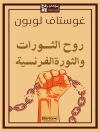The Life of Amerigo Vespucci is a compelling anthology that charts bold explorations and encounters with the New World through the writings of some of its earliest European explorers. In this collection, a vivid tapestry of discovery is woven through the letters and narratives of figures such as Christopher Columbus, Bartolomé de las Casas, and the titular Amerigo Vespucci. This scholarly anthology is a treasure trove, revealing diverse literary styles from the earnest proclamations of wonder by Columbus to the more reflective and morally questioning tones of de las Casas. Through its selections, readers are exposed to the multifaceted nature of 15th and 16th-century exploration literature, offering a distinctive glimpse into the evolving European consciousness shaped by these newfound lands. This collection features insightful accounts that, collectively, rise above their individual components to inform an overarching narrative of curiosity, conquest, and ethical consideration. The contributing authors of this anthology represent a fascinating cross-section of explorers who were instrumental in defining the West’s understanding of the Americas. These narratives are inextricably linked to the larger historical and cultural movements of the Age of Exploration, with each author providing a unique lens through which to view this transformative era. While Columbus’s and Vespucci’s accounts carry the audacity of navigators charting the unknown, de las Casas offers a counterbalance, grappling with the moral implications of these encounters and colonizations. Together, their accounts bridge a rich dialogue between the perspectives of exploratory fervor and humanist inquiry, deepening the reader’s understanding of this tumultuous period. Recommended for scholars and enthusiasts alike, The Life of Amerigo Vespucci invites readers to embark on a nuanced expedition through early exploration narratives. This anthology stands out not only for its historical significance but also for its ability to unite disparate voices in a single cohesive dialogue that enriches our perception of the New World and its legacy. Engaging with this collection offers an unparalleled opportunity to appreciate the depth of early cross-cultural encounters and the varied motivations that fueled them, allowing for a comprehensive examination of an era that indelibly shaped history.
About the author
Christopher Columbus, the renowned navigator and explorer, is not typically recognized for his literary contributions; rather, he is most famous for his voyages that led to the European awareness of the American continents. The book attributed to him, ‘The Life of Amerigo Vespucci, ‘ is not a documented work within Columbus’s known literary canon. In truth, the primary documents that can be linked to Columbus are a collection of letters and writings that detail his experiences and observations during his voyages, such as ‘Select Letters of Christopher Columbus’ which includes his descriptions of the New World and interactions with indigenous peoples. As for the literary style, Columbus’s writings are pragmatic and observational, allowing his readers to glimpse into the mind of a man who stood at the forefront of European exploration. They are historical documents rather than literary texts, but they do hold significant value in understanding the mindset and the impact of European conquest during the Age of Discovery. Due to these factors, the author biography of Columbus in relation to a book he has not been verified to have authored would be inappropriate, and the entry remains rightly empty.












